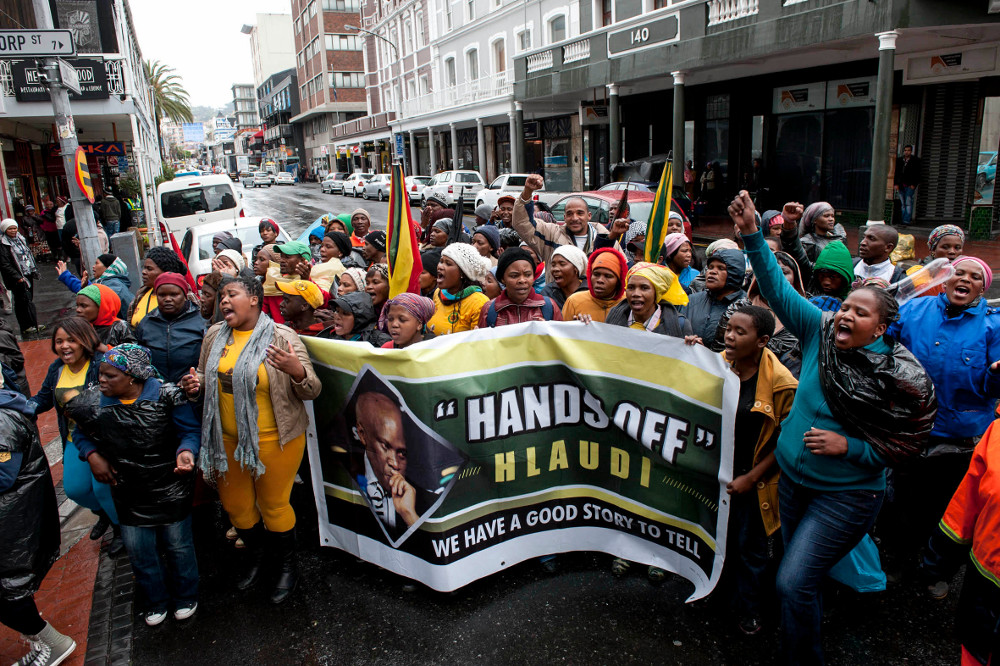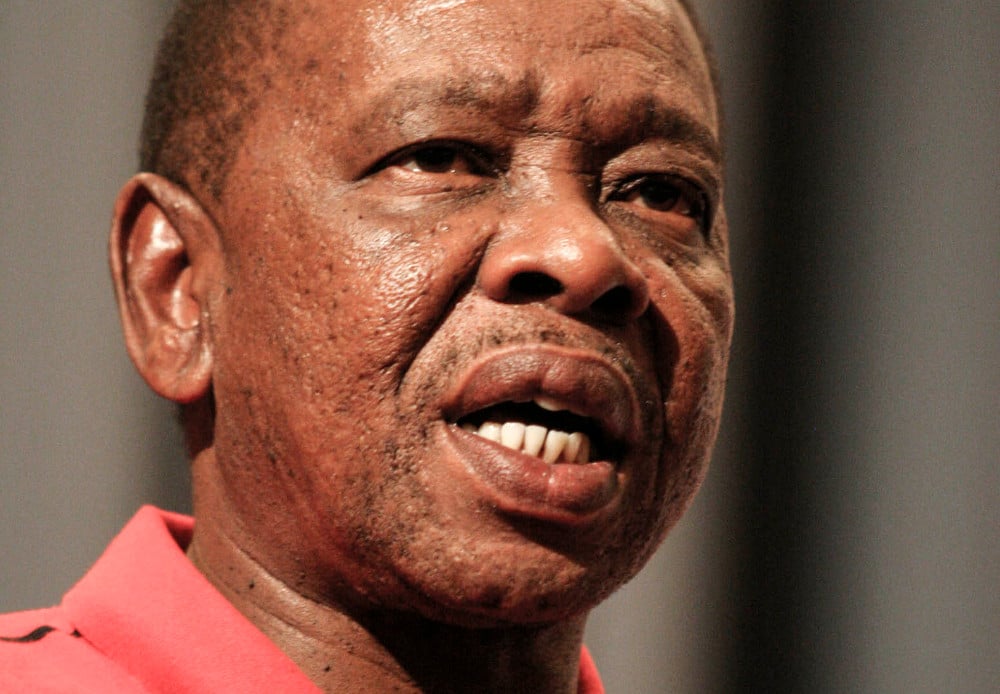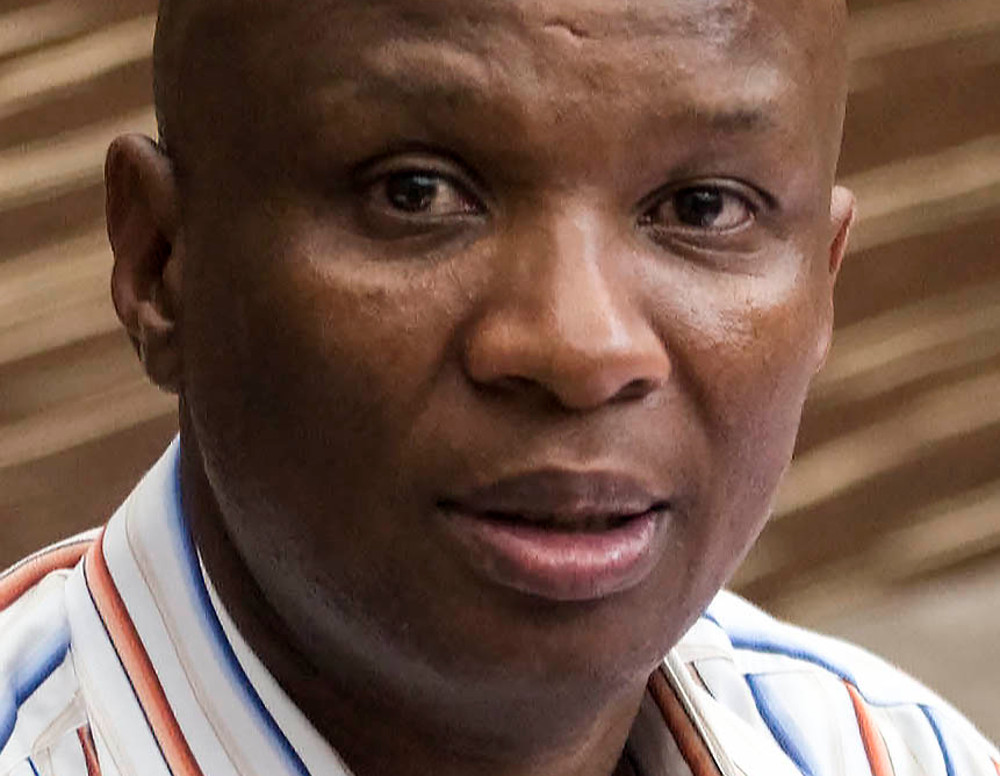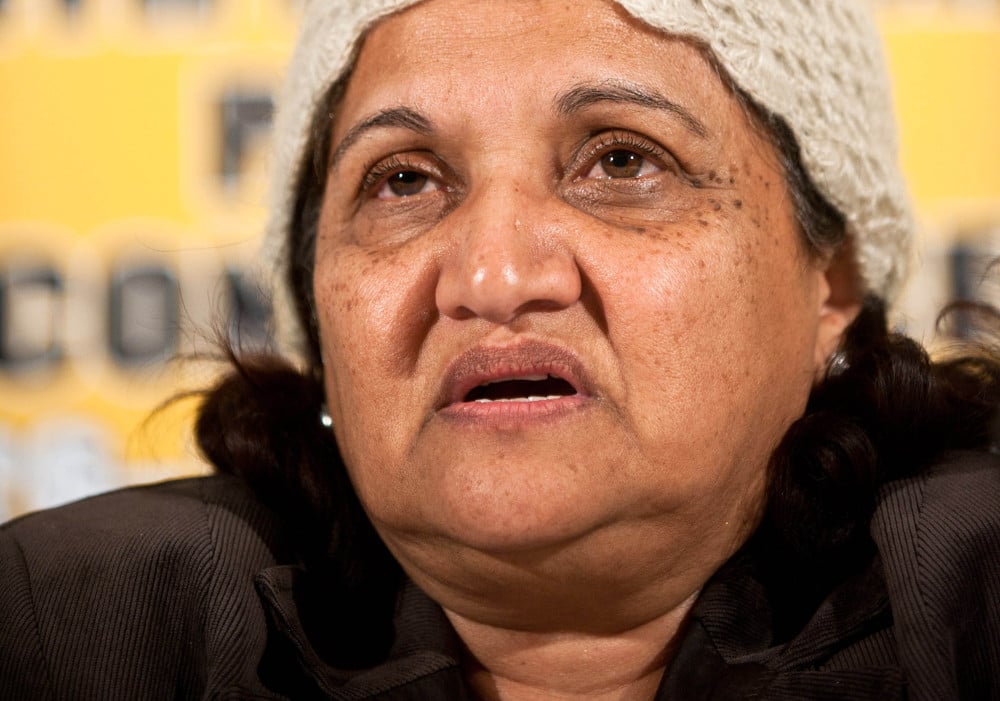Thuli Madonsela has been accused of pursuing a personal vendetta against Jacob Zuma
If Nkandla subjected public protector Thuli Madonsela to attacks the likes of which have never been seen, South Africa’s fast-approaching decision on who will build a fantastically expensive fleet of new nuclear power stations will set a new record during her last year in office.
“From a legacy point of view we have some of the big investigations that I do hope that together with my team we can conclude, the Eskom ones, which include Medupi [coal-fired power station, currently under construction], and we also have been asked to do the nuclear one even before it has started,” Madonsela said this week, when the Mail & Guardian asked what she hopes to achieve before her term in office runs out in September 2016.
The new nuclear build programme, Madonsela said, has caused concern because it is not clear how it fits in with government’s planning framework and because it is “possibly predetermined in terms of its goal”.
The public protector said that in its 20 years of existence her office “has never received such vitriolic attacks from politicians” as those which followed the release of her report into state spending on President Jacob Zuma’s Nkandla residence.
Zuma’s personal theoretical liability on Nkandla maxes out at R31-million of the R246-million the total project is expected to cost. Though the issue itself may linger, the political heat around it will evaporate quickly once Zuma’s time as president ends by no later than 2019. The matter is of parochial South African interest. As things stand, Madonsela has little to no power to make anyone do anything, including making the president pay back the money.
Procurement
In mid-July, the department of energy confirmed that procurement for the new nuclear stations is due to be completed in the next six months. Studies on cost had been completed, the department said, but “government is still to negotiate the price tag in the procurement process, which is why exact figures for the study cannot be made available to the public at this stage”.
Harald Winkler, director of the Energy Research Centre at the University of Cape Town, said “we’ll only know the price once the deal is signed”. His is one of several organisations that have pointed out the need for transparency in the nuclear procurement process. “The range is a cost between five times and 20 times the size of the arms deal. With that at stake we need to know the price.”

Supporters of Hlaudi Motsoeneng protest over the public protector’s findings regarding the SABC chief. (David Harrison, M&G)
Although an investigation by the public protector may help pin down the potential costs of the nuclear project, and although her office has the power to demand documents and interviews that could shed light on preferential treatment of any bidders, Madonsela’s focus will be on the legality and standing of decisions and agreements already made.
That represents a unique opportunity. Madonsela’s report on Nkandla came after more than 80% of the project’s expected cost had already been spent, and after many of the decisions she was fiercely critical of had already been implemented. An investigation of the nuclear deal would be pre-emptive, and an adverse finding could halt the process before significant money is spent, and before agreements that are difficult to unwind are entered into.
There are two practical hurdles to such an outcome: money and power, both currently limited because of Madonsela’s previous struggles with the executive branch of government.
The nuclear inquiry, Madonsela said, is “where the issue of resources is so painful, because if we were able to do it fast, then there would be a decision on whether to proceed”.
Root of the failure
Madonsela and her predecessor, Lawrence Mushwana, made various submissions to Parliament for more money, suggesting that the size of the public protector’s office should at least double. This week Madonsela stopped short of linking a failure to secure such large budget increases directly to the Nkandla fallout – which has seen ruling party MPs fiercely criticise her and her work – and said the “inability to talk as human beings, to exercise civility” is at the root of that failure.
But even if there were enough money sloshing around the public protector’s office to conduct a lightning-fast investigation of something as complex as the nuclear build project, Madonsela is all but toothless until at least September 18.

Contemptuous: Minister Blade Nzimande. (Oupa Nkosi, M&G)
In late October last year the high court in Cape Town ruled that the findings of the public protector are more than mere recommendations, but at the same time were not binding. The court was considering a Democratic Alliance demand that SABC chief Hlaudi Motsoeneng be suspended from his job on the basis of a Madonsela finding, but the implications were much broader.
Under that regime, a finding by Madonsela that, say, the plan to build a nuclear fleet is a triumph of politics over economic sense and must be halted immediately, could be ignored by the executive, and Madonsela would be powerless to do anything other than hold press conferences reiterating the point until her time in office expired.

Undermining: ANC spokesperson Zizi Kodwa. (Oupa Nkosi, M&G)
On September 18, however, the Supreme Court of Appeal is due to hear argument on the Motsoeneng matter, and again the implications could go well beyond the SABC.
“If the court decides the power to take remedial action has a binding effect on whoever we are taking remedial action against, that would mean two things about our powers. One, it would mean that, obviously, if somebody does not implement we can take contempt proceedings as part of having the remedial action taken. But secondly it would also mean that the case doesn’t close until remedial action has been implemented.”
Greater power
The ability to demand implementation would give the public protector far greater power than the moral persuasion the office currently relies on. Instead of holding that a president should pay back a portion of the state funds spent on his private residence – and then watching from the sidelines as the matter regularly brings Parliament to a halt over the next 17 months – it would be able to hold such a president in contempt much as if he had ignored a court order.
Although superficially less important, cases remaining technically open until remedial action is implemented could have equally big implications. Since the release of her Nkandla report, Madonsela has been called a spy and a collaborator with opposition parties; she has been accused of misleading the nation and of pursuing a personal vendetta against Zuma through her office. The labels and accusations have come from Cabinet ministers, ruling party officials and Members of Parliament.

Critical: The ANC’s Jessie Duarte. (Delwyn Verasamy, M&G)
“The fact that people have been contemptuous is not an issue,” Madonsela said this week, naming Higher Education Minister Blade Nzimande, ANC deputy secretary-general Jessie Duarte and ANC spokesperson Zizi Kodwa as individuals who had undermined her office. “So clearly there’s been contempt.”
She is also firmly of the opinion that the various instances of contempt have done real harm to her office and the nation, along the way distorting “the dialogue about Nkandla to be about whether the Mercedes has doors that are not really as firm as they should have been, whether the power steering is as powerful as it was claimed, or the aircon, when the issue is whether the Mercedes should have been purchased to start with”.
The dignity of the public protector has the same shield of contempt as judges which, as the Constitutional Court explains, is required because crying bias in circumstances where the public is likely to believe it undermines impartial adjudication – and can allow for defiance of the law or de facto immunity for wrongdoers.
Contempt proceedings
Had a Cabinet minister accused her of being a CIA spy because of her work on Nkandla while she was investigating Nkandla, Madonsela believes, she could have – and would have – instituted contempt proceedings. Because of a peculiarity of law, she believes the ending of the investigation, with the delivery of her Nkandla report in March last year, closed the window for such action. That can change at the stroke of a Supreme Court of Appeal pen. If it does, the balance of power will be different when Madonsela seeks to implement one of her other legacy projects.
“I hope that with my remaining year I will hold quiet meetings with the Cabinet, as I have done previously,” Madonsela said on her final tasks and what she hopes to leave for her successor, “to just reaffirm the common ground and agree on rules of engagement on points of divergence. And hopefully I will do the same with the president.”
Public must help decide who’ll protect them
Once in office, a public protector is hard to remove, but the Constitution is clear: the seven-year term for that position is nonrenewable and, at the end of September 2016, Thuli Madonsela’s time will be up.
Her appointment in 2009 by President Jacob Zuma, then only in office for a little over five months himself, was uncontroversial. But in the light of recent history, the appointment of her successor is highly unlikely to be similar.
A new public protector must be appointed by the president – who has had, at best, a frosty relationship with that office over the past two years – on the recommendation of the National Assembly, members of which have had harsh words for the office.
The National Assembly will nominate a committee that, in terms of the Constitution, must have representatives from every party with a seat in the assembly. That would make for a committee dominated by the ANC, but with four out of every 10 members drawn from opposition parties.
The nominations for the post to be put before the president must be approved by a vote of the full assembly with a minimum of 60% support, a number easy for the ANC to reach with the 62.25% of all seats it holds.
But the importance of getting it right for them is underscored by the fact that it requires a two-thirds majority vote to remove a sitting public protector, making it possible for the five largest parties combined to exercise an effective veto in such a case.
The field of potential public protectors is huge. Candidates need only be South African citizens, and “fit and proper” to hold the office. Every high court judge is automatically eligible, regardless of how long he or she has been on the Bench, as is anyone who has a total 10 years as one or a combination of the following:
- A practising lawyer or advocate, or lecturer in law at a university after qualifying for admission to either those jobs;
- Experience or specialised knowledge of public finance, public administration or administration of justice; or
- An MP.
The only role for civil society in the selection process is the usual obligation on Parliament to consult the people on such matters, an opportunity that is likely to be maximised by nongovernmental organisations that will be intent on encouraging public action.
“The appointment of Thuli Madonsela’s successor is going to be an extremely important moment in the fight against corruption,” said Corruption Watch executive director David Lewis this week.
“We will do all in our power to ensure that the public appreciates the stakes involved and understands the room for participation in the appointment process.
“Madonsela has set a high standard for this position. We’re determined to ensure that her successor maintains the public protector’s standards of integrity and courage.”